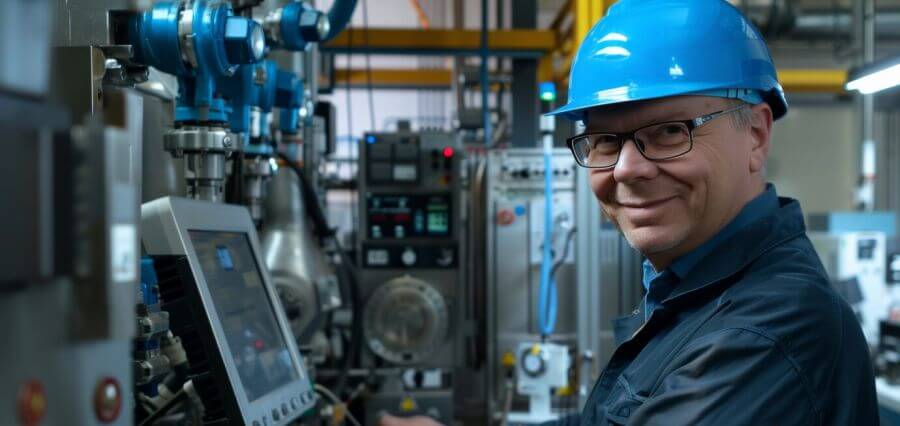In today’s highly competitive industrial landscape, accuracy and efficiency are key to maintaining a profitable and well-functioning factory. One of the essential tools in achieving these goals is the flow meter. Flow meters are critical in measuring the rate at which fluids move through a system, making them indispensable for quality control, safety, and operational efficiency. This article will guide you through the process of selecting the right flow meter for your factory, covering important factors to consider and highlighting the importance of choosing a reputable manufacturer.
Understanding the Importance of Flow Meters in Factory Operations
Flow meters are fundamental to factory operations, providing precise measurements of fluid flow, which is crucial for maintaining product quality and optimizing resource use. These devices are used across various industries, from chemical processing to food and beverage production. The type of flow meter you choose will depend on the specific application within your factory. For example, turbine flow meters are ideal for clean, low-viscosity fluids, while ultrasonic flow meters are suitable for measuring the flow of fluids containing particulates or bubbles. Magnetic flow meters, on the other hand, are often used for conductive liquids and slurries.
Key Factors to Consider When Choosing a Flow Meter
When selecting a flow meter, several key factors must be considered to ensure that the device meets your factory’s operational needs.
- Fluid Characteristics: The nature of the fluid being measured is one of the most critical factors. This includes the fluid’s viscosity, temperature, and whether it contains solids or gases. Different flow meters are designed to handle specific types of fluids. For instance, high-viscosity fluids might require a positive displacement flow meter, while low-viscosity fluids could be better suited to a turbine flow meter.
- Flow Range and Pressure: Your flow meter must accommodate the expected range of flow rates and pressure levels in your system. If the flow rate exceeds the meter’s capacity, it could result in inaccurate readings or damage to the meter. Therefore, selecting a flow meter that can handle the full spectrum of flow rates in your factory is essential.
- Installation Environment: The physical conditions of the installation site, including available space, ambient temperature, and potential exposure to corrosive substances, can impact the choice of flow meter. Some meters, like magnetic flow meters, are less sensitive to installation conditions, while others may require specific orientations or protections against environmental factors.
- Accuracy and Reliability Needs: Depending on your factory’s operational requirements, you may need a flow meter with very high accuracy and reliability. Consider the potential consequences of measurement errors, such as product recalls or process inefficiencies, when selecting your flow meter.
The Role of Technology in Modern Flow Meters
The advancement of technology has greatly enhanced the functionality of flow meters. Modern flow meters often come equipped with digital displays, data logging capabilities, and wireless connectivity, allowing for real-time monitoring and integration with other factory systems. These features not only improve the accuracy of measurements but also facilitate easier maintenance and troubleshooting, reducing downtime and operational costs.
Selecting the Right Manufacturers
Choosing the right manufacturer is as important as selecting the correct flow meter type. A reputable manufacturer can offer high-quality products, reliable technical support, and long-term service. When evaluating manufacturers, consider their reputation in the industry, the range of products they offer, and their experience in producing flow meters for various industrial applications. For example, a well-established manufacturer of different flow meters will have the expertise to provide guidance on the best solutions for your specific needs. Additionally, look for manufacturers that offer robust customer support, including warranties and access to replacement parts.
Cost Considerations and ROI
While cost is always a consideration, it’s essential to balance initial purchase costs with long-term benefits. Investing in a high-quality flow meter from a reputable manufacturer may have a higher upfront cost, but it can lead to significant savings through improved accuracy, reduced maintenance, and longer service life. Consider the total cost of ownership, including installation, calibration, and potential downtime when making your decision. A well-chosen flow meter can deliver a strong return on investment by enhancing efficiency and reducing waste in your factory operations.
Conclusion
Selecting the right flow meter for your factory operations involves careful consideration of fluid characteristics, flow range, installation environment, and accuracy requirements. Additionally, choosing a reputable manufacturer is crucial to ensuring that your flow meter performs reliably over time. By taking these factors into account, you can optimize your factory’s efficiency and ensure precise control over your production processes.














